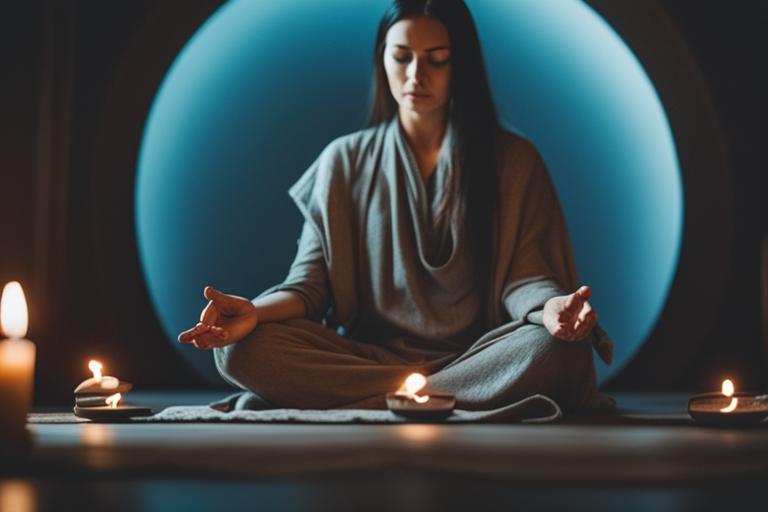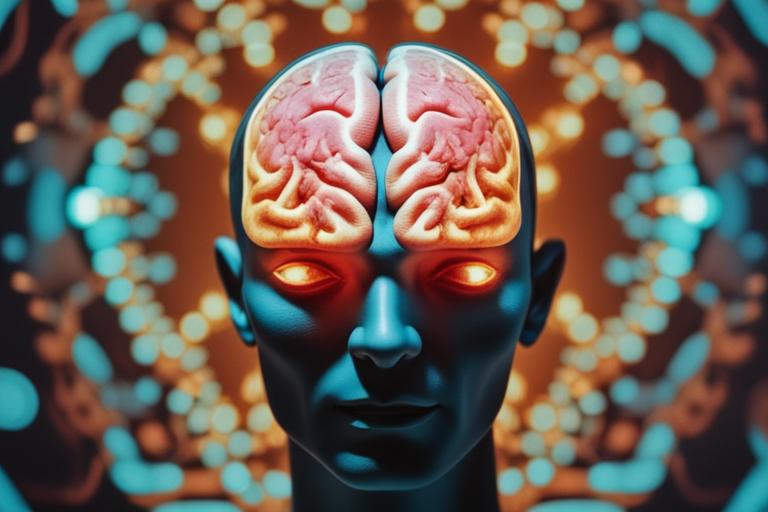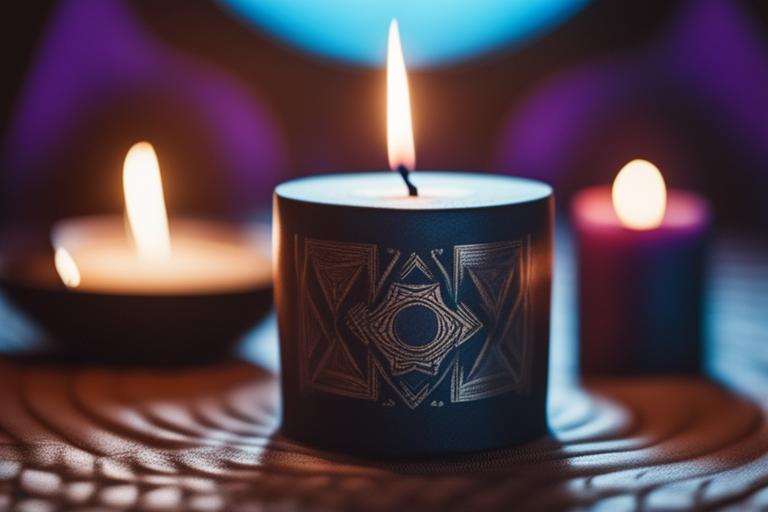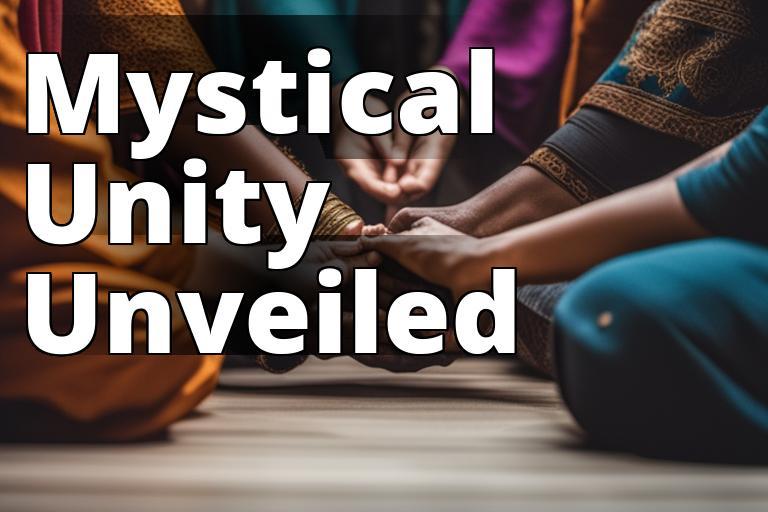What Do Rituals Really Work? Exploring the Science Behind the Magic
- Rituals have a purpose in various cultures and belief systems, including religious, cultural, and personal rituals.
- Rituals have psychological benefits, such as reducing anxiety and promoting well-being, and they can influence cognition, perception, and emotional states.
- The effectiveness of rituals is influenced by belief systems, the sense of control they provide, and their ability to strengthen social bonds and create a sense of community.
Defining Rituals
Rituals have been an integral part of human culture for centuries. From religious ceremonies to personal daily routines, rituals hold a special place in our lives. But do rituals really work? In this article, we will explore the science behind rituals and the fascinating ways in which they impact our lives. Whether you are a believer or a skeptic, join us on this journey to uncover the secrets behind the magic of rituals.
Religious, Cultural, and Personal Rituals
Before we dive into the science behind rituals, let’s first define what rituals actually are. Rituals are a set of symbolic behaviors that are performed before, during, and after important events or as part of a larger belief system. They can take many forms, ranging from religious ceremonies to personal daily routines.
Rituals are deeply rooted in religious and cultural practices. In various religious traditions, rituals serve as a way to connect with the divine, express devotion, and seek spiritual guidance. These rituals often involve specific actions, such as prayer, meditation, or the use of sacred objects, to create a sense of sacredness and reverence.
Cultural rituals, on the other hand, are closely tied to the traditions and customs of a particular group or community. They can include ceremonies, festivals, and rites of passage that mark important milestones in individual and collective lives. Cultural rituals are often performed as a way to honor ancestors, celebrate cultural heritage, and maintain social cohesion.
Beyond religious and cultural contexts, individuals also engage in personal rituals that are unique to their own lives. These rituals can serve various purposes, such as promoting personal well-being, reducing stress, or enhancing focus and concentration. Personal rituals can range from simple activities like morning routines or bedtime rituals to more elaborate practices like journaling or mindfulness exercises.

The Psychological Perspective on Rituals
Now that we have a better understanding of what rituals are, let’s explore the psychological perspective on rituals and their benefits. Research has shown that rituals have a profound impact on our psychological well-being and can help reduce anxiety, promote a sense of control, and enhance overall mental health.
Reducing Anxiety and Promoting Well-Being
One of the key psychological benefits of rituals is their ability to reduce anxiety and create a sense of calm. Engaging in repetitive and structured behaviors during rituals can have a soothing effect on the mind and body. This is because rituals provide a predictable and familiar framework that helps individuals feel more in control and less threatened by uncertainty.
Moreover, rituals can also serve as a form of self-care and self-expression, allowing individuals to carve out dedicated time for activities that bring them joy and relaxation. Whether it’s taking a long bath, practicing yoga, or engaging in creative pursuits, these rituals provide a much-needed break from the demands of daily life and contribute to overall well-being.
The Role of Behavioral Reinforcement
Another psychological mechanism that contributes to the effectiveness of rituals is behavioral reinforcement. When we engage in a ritual and experience a positive outcome or a sense of accomplishment, our brains associate those behaviors with positive emotions. This reinforces the likelihood of repeating the ritual in the future.
For example, if someone performs a pre-performance ritual before giving a presentation and receives positive feedback from the audience, they are more likely to continue using that ritual in future presentations. The positive reinforcement from the successful outcome strengthens the belief in the effectiveness of the ritual, creating a self-perpetuating cycle.

The Neurological and Cognitive Science of Rituals
Beyond the psychological benefits, rituals also have a fascinating impact on our neurological and cognitive processes. Recent research has shed light on the brain mechanisms involved in performing rituals and the ways in which rituals can influence our cognition, perception, and emotional states.
Influence on Brain Activity
Studies using neuroimaging techniques, such as functional magnetic resonance imaging (fMRI), have revealed that rituals activate specific regions of the brain associated with reward, motivation, and emotional processing. These areas include the prefrontal cortex, the striatum, and the amygdala.
The prefrontal cortex plays a crucial role in decision-making, planning, and self-control. During rituals, this region is activated as individuals engage in purposeful and goal-directed behaviors. The striatum, on the other hand, is involved in the processing of rewards and reinforces the positive feelings associated with rituals. Lastly, the amygdala, known for its role in emotional processing, is activated during rituals, indicating the emotional significance and impact of these practices.
Influence on Perception and Emotional States
Rituals can also influence our perception of the world and our emotional states. Research has shown that performing rituals can enhance our focus and attention, leading to a heightened sense of presence and mindfulness. This heightened state of awareness allows individuals to fully immerse themselves in the ritual and experience a deep connection with the present moment.
Moreover, rituals have the power to evoke specific emotions and create a sense of emotional well-being. For example, lighting candles and burning incense during a ritual can create a calming and serene atmosphere, promoting relaxation and a sense of tranquility. Similarly, engaging in rituals that involve movement, such as dance or walking meditations, can stimulate the release of endorphins and contribute to a positive emotional state.
Rituals and the Power of Belief
Belief systems play a crucial role in the effectiveness of rituals. The power of belief lies in its ability to shape our thoughts, emotions, and behaviors. When individuals engage in rituals with a strong belief in their efficacy, they create a psychological and emotional mindset that enhances the ritual’s impact.

The Placebo Effect and Rituals
One fascinating phenomenon related to belief and rituals is the placebo effect. The placebo effect refers to the beneficial effects that arise from a person’s belief in a treatment or intervention, even if that treatment has no active ingredients or therapeutic properties. In the context of rituals, the placebo effect suggests that the mere belief in the effectiveness of a ritual can lead to positive outcomes.
Research has shown that the placebo effect can be particularly strong when it comes to subjective experiences, such as pain perception, mood enhancement, and overall well-being. By engaging in rituals with a belief in their healing or transformative power, individuals may experience improvements in their physical and mental states, simply because they expect those improvements to occur.

The Role of Symbolism and Meaning
The symbolic nature of rituals also contributes to their effectiveness. Symbols and rituals are deeply intertwined, as symbols carry meaning and represent abstract concepts or ideas. When individuals engage in rituals that involve meaningful symbols, they tap into the power of symbolism and create a connection between the ritual and their desired outcome.
For example, in many cultures, the act of lighting candles symbolizes hope, guidance, and spiritual illumination. By incorporating this symbolic act into a ritual, individuals infuse their intentions with deeper meaning and significance. This symbolic association strengthens the belief in the ritual’s effectiveness and enhances the overall impact on the individual’s well-being.
Rituals and the Sense of Control
One of the fundamental psychological needs of individuals is a sense of control over their environment and their lives. Rituals provide a structured framework that allows individuals to exert control and mastery over certain aspects of their lives, even in the face of uncertainty and chaos.
Self-Efficacy and the Effectiveness of Rituals
Self-efficacy, a concept developed by psychologist Albert Bandura, refers to an individual’s belief in their ability to successfully perform a specific task or achieve a desired outcome. Rituals can enhance self-efficacy by providing individuals with a sense of structure, predictability, and control over their actions.
When individuals engage in rituals and observe the positive outcomes or benefits that arise from those rituals, their self-efficacy increases. This increased self-efficacy, in turn, motivates individuals to continue engaging in the ritual and reinforces the belief in its effectiveness. The sense of control and mastery that rituals provide can have a transformative effect on individuals’ lives, empowering them to overcome challenges and achieve their goals.
Personal Story: The Power of Rituals in Overcoming Anxiety
Personal Story: The Power of Rituals in Overcoming Anxiety
When I was in my early twenties, I struggled with severe anxiety. It felt like a constant battle to keep my worries at bay and find some semblance of peace. That’s when I stumbled upon the power of rituals.
One evening, after a particularly stressful day, I decided to create my own ritual to help calm my mind before going to bed. I started by lighting a scented candle and sitting cross-legged on the floor. I closed my eyes and took deep, slow breaths, focusing on the sensation of the air filling my lungs and then leaving my body. As I continued to breathe, I repeated a soothing mantra to myself: “I am calm, I am safe, I am in control.”
At first, it felt a bit silly. But as I repeated the ritual night after night, something incredible happened. I noticed that the mere act of lighting the candle and sitting in that specific position triggered a sense of calm within me. It was as if my mind and body recognized the ritual and responded by releasing tension and embracing relaxation.
Over time, I began to incorporate other elements into my ritual. I added gentle stretching exercises and soft music to create a soothing ambiance. I also started journaling before bed, jotting down my worries and then consciously letting them go.
The effects were profound. Not only did the ritual help me relax and fall asleep faster, but it also had a lasting impact on my overall anxiety levels. I found myself better equipped to handle stressful situations during the day, knowing that I had a calming ritual waiting for me at night.
Through my personal experience, I discovered that rituals have the power to ground us and provide a sense of control over our emotions. By engaging in intentional actions and repeating them consistently, we can tap into the psychological and neurological benefits of rituals. They serve as a reminder that we have the ability to shape our own well-being and find solace amidst chaos.
While my ritual may not work for everyone, it serves as a testament to the transformative potential of incorporating rituals into our lives. Whether it’s a simple morning routine, a daily gratitude practice, or a bedtime ritual like mine, finding rituals that resonate with us can be a powerful tool in managing anxiety and promoting overall well-being.
The Social and Cultural Aspects of Rituals
Rituals are deeply embedded in social and cultural contexts. They serve as a way to strengthen social bonds, create a sense of community, and preserve cultural traditions. By participating in rituals together, individuals form shared experiences and a sense of belonging.
Strengthening Social Bonds
Rituals often involve collective participation and create a shared sense of identity and belonging. For example, religious rituals like weddings, funerals, or religious festivals bring communities together and foster a sense of unity and cohesion. Similarly, cultural rituals, such as national holidays or traditional ceremonies, provide an opportunity for individuals to connect with their cultural heritage and strengthen their ties to their community.
Beyond the collective experience, rituals also facilitate interpersonal connections and deepen relationships. For instance, family rituals, like holiday gatherings or Sunday dinners, create a space for shared activities and meaningful interactions. These rituals help strengthen family bonds, provide a sense
Frequently Asked Questions
Who practices rituals in Northern Witchcraft?
Northern witches and practitioners of the craft.
What are the benefits of performing rituals?
Rituals can bring focus, connection, and empowerment.
How do rituals work in Northern Witchcraft?
Rituals combine symbolism, intention, and energy.
What if I don’t believe in the power of rituals?
Rituals can be seen as psychological tools for personal growth.
How can rituals enhance my spiritual journey?
Rituals can deepen your connection to the divine and yourself.
What if I’m new to Northern Witchcraft? Can I still perform rituals?
Yes, rituals can be adapted to suit beginners and experienced practitioners alike.
Dr. Emily Roberts is a renowned psychologist and researcher specializing in the intersection of psychology and cultural practices. With a Ph.D. in Social Psychology from Stanford University, Dr. Roberts has spent over a decade studying the science behind rituals and their impact on human behavior and well-being.
Throughout her career, Dr. Roberts has conducted extensive research on the psychological, neurological, and cognitive aspects of rituals. Her groundbreaking studies have been published in prestigious scientific journals, such as the Journal of Experimental Psychology and the Journal of Neuroscience.
Dr. Roberts’ expertise has not only gained recognition within the academic community but has also made her a sought-after speaker at international conferences and seminars. She has been invited to share her insights on rituals and their effects on perception, emotional states, and personal growth with audiences around the world.
In addition to her research and speaking engagements, Dr. Roberts has worked closely with individuals seeking to incorporate rituals into their lives to reduce anxiety and enhance their overall well-being. Through her compassionate and evidence-based approach, she has helped countless individuals harness the power of rituals to overcome challenges and find inner peace.
With her wealth of knowledge and practical experience, Dr. Emily Roberts is a trusted authority in the field of ritual psychology, shedding light on the science that makes them work and empowering individuals to embrace the transformative potential of rituals.
